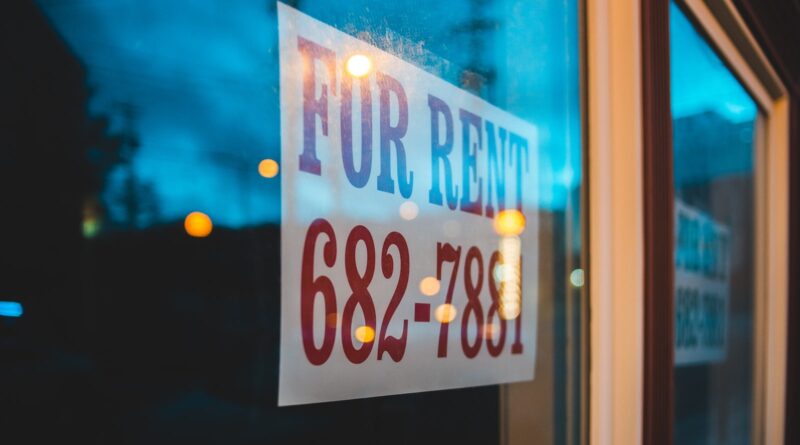Beginner’s Guide to Debt Collection for Real Estate Investors: Handling Delinquent Tenants
As the world continues to experience rapid growth and development, the real estate industry has become one of the most lucrative investment opportunities. With the potential for high returns, more people are investing in real estate properties, ranging from rental apartments to commercial buildings. However, investing in real estate is not without its challenges, and one of the biggest challenges is dealing with delinquent tenants.
Delinquent tenants can cause significant financial strain for real estate investors, leading to a loss of income and potentially damaging their investment. From non-payment of rent to damaging property, delinquent tenants can create a stressful and frustrating experience for real estate investors. If you’re a real estate investor experiencing this, you may feel overwhelmed and unsure of how to handle the situation.
Fortunately, there are practical steps you can take to manage delinquent tenants effectively. This beginner’s guide aims to provide you with these practical steps, allowing you to handle delinquent tenants with ease and protect your investment. We will explore warning signs to watch out for, communication strategies, payment plans, and legal action as a last resort. By the end of this guide, you will be equipped with the knowledge and tools necessary to handle delinquent tenants and maintain a positive relationship with them. So, let’s dive in and learn how to handle delinquent tenants like a pro!
Handling Delinquent Tenants
Handling delinquent tenants is the process of managing tenants who are behind on their rent payments. This can involve communicating with tenants, negotiating payment plans, and taking legal action if necessary.
The good news is that handling delinquent tenants can be easier than you think. With the right approach and the right tools, you can reduce stress, protect your investment, and maintain a positive relationship with your tenants. Here are a few examples of how easy it can be:
- Setting up an online payment system to make it easy for tenants to pay rent
- Sending friendly reminders and following up with tenants who are behind on payments
- Creating a payment plan that works for both parties
- Having a clear and concise lease agreement that outlines the consequences of not paying rent on time
Steps to Follow for Handling Delinquent Tenants
Step 1: Identify the Warning Signs of Delinquent Tenants
The first step in handling delinquent tenants is to identify the warning signs. This can include late or missing rent payments, failure to respond to calls or emails, damage to the property, or complaints from neighbors. As soon as you notice any of these warning signs, it’s important to take action before the situation gets worse.
To identify these warning signs, it’s important to keep good records of rent payments and communication with tenants. You can also set up automated systems to notify you when rent payments are overdue or when a tenant hasn’t responded to your messages. This can help you catch delinquent tenants early on and take appropriate action.
Step 2: Communicate Effectively with Your Tenants
Effective communication is key to handling delinquent tenants. It’s important to be firm but fair and to keep the lines of communication open. Here are some tips for effective communication:
- Be clear and concise in your messages: Avoid using legal jargon or complex language. Use simple and straightforward language to ensure your message is clear.
- Use a friendly tone: Being friendly and approachable can help defuse tense situations and encourage tenants to work with you to resolve any issues.
- Follow up regularly: Follow up with tenants regularly to ensure they are meeting their payment commitments or to provide additional support if needed.
- Keep records of all communication: It’s important to keep detailed records of all communication with tenants. This can be helpful if legal action becomes necessary.
Step 3: Set Up a Payment Plan That Works for Both Parties
If your tenant is behind on rent, it’s important to work with them to come up with a payment plan that works for both parties. This can help avoid eviction and maintain a positive relationship with the tenant. Here are some tips for setting up a payment plan:
- Be flexible and willing to negotiate: Avoid taking a hard-line approach when negotiating a payment plan. Be willing to make concessions and to work with the tenant to find a solution that works for both parties.
- Set clear expectations and deadlines: Make sure the payment plan is clearly outlined, including payment amounts, due dates, and consequences for missed payments.
- Document the payment plan in writing: It’s important to have a written agreement that outlines the payment plan. This can help avoid misunderstandings and provide a record of the agreement.
- Follow up regularly to ensure payments are being made on time: Regular follow-up can help ensure the payment plan is working and can help catch any issues early on.
Step 4: Use Legal Action as a Last Resort
If all else fails, legal action may be necessary. This should be used as a last resort, and it’s important to consult with a lawyer before taking any legal action. Here are some legal options that may be available:
- Eviction: If a tenant is consistently behind on rent, eviction may be necessary. This process can be complex, and it’s important to follow all legal requirements.
- Small claims court: If a tenant owes a small amount of money, small claims court may be an option. This process is usually quicker and less expensive than other legal options.
- Collections agencies: If a tenant owes a significant amount of money, you may want to consider using a collections agency. These agencies can help recover unpaid rent but will charge a fee for their services.
Handling delinquent tenants can be a difficult and stressful experience for real estate investors. Ignoring the warning signs or failing to take appropriate action can lead to financial losses and damage to your investment. By following the steps outlined in this guide, you can reduce stress, protect your investment, and maintain a positive relationship with your tenants.
Final Words
Handling delinquent tenants is a crucial skill for real estate investors. By following the steps outlined in this beginner’s guide, you can identify warning signs early on, communicate effectively with your tenants, set up a payment plan that works for both parties, and use legal action as a last resort if necessary. Remember, the key to handling delinquent tenants is to be proactive and take action as soon as warning signs appear.
Additionally, it’s important to have empathy with your tenants and understand their struggles. Many tenants may be facing financial difficulties or personal challenges that make it difficult for them to make rent payments. By working with them to find a solution, you can maintain a positive relationship and avoid eviction.
By following the steps outlined in this guide and staying proactive and empathetic, you can successfully handle delinquent tenants and protect your investment as a real estate investor. If you’re still struggling to handle delinquent tenants, consider consulting with a professional property management company or a real estate attorney. They can provide additional guidance and support to help you navigate the process successfully.

